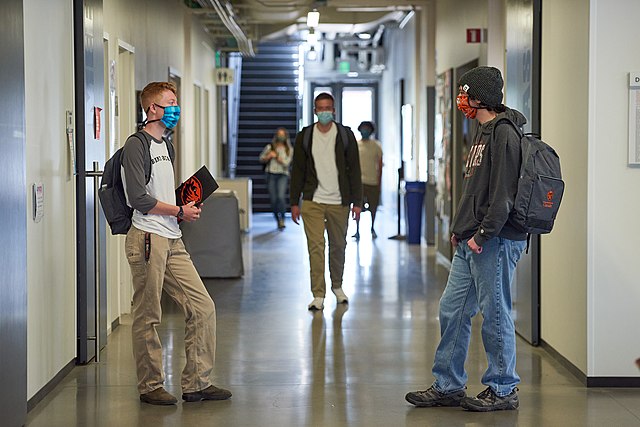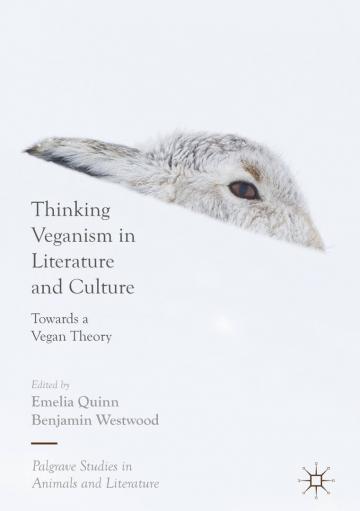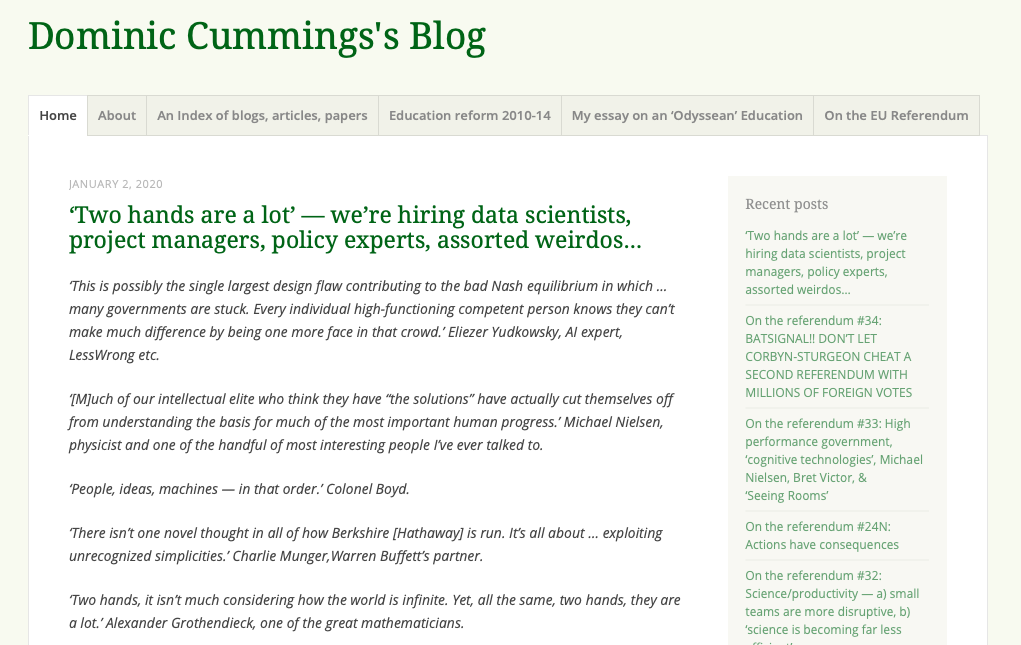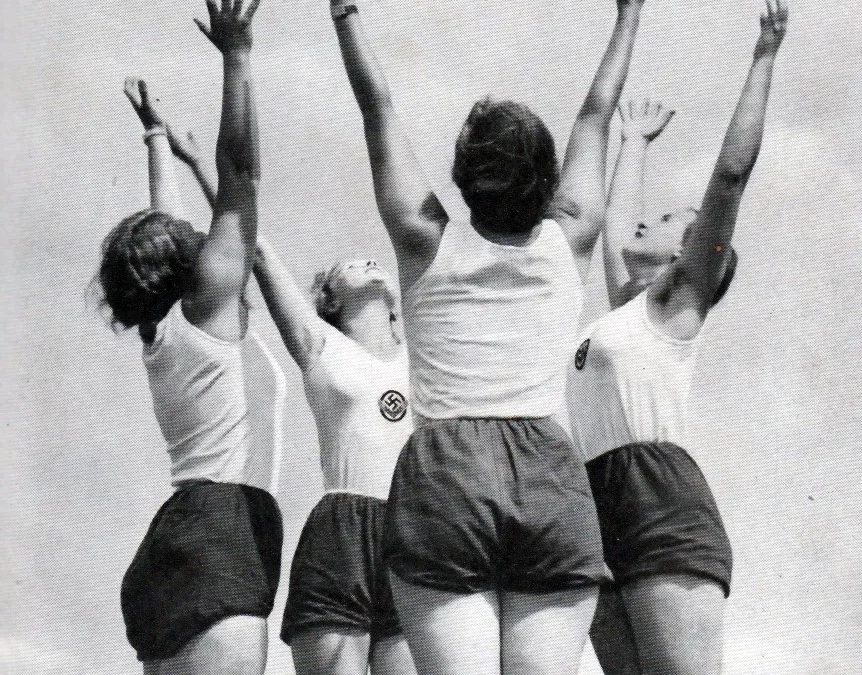The following was written as an open letter to be read out to an initial meeting of the ‘Vegan Info and Social Group’, which was founded in January 2019 in Chapel-en-le-Frith by Dave Brock, former editor of the newsletter of the DH Lawrence Society. (He was a good friend of Ted Hughes, and often debated fishing with him..). It is not an argument for veganism (though it will be apparent that my motivation is anti-speciesism), but instead is an affective account of the period of transition.
‘As a vegan of relatively short-standing (since March 2018), I am well aware that I am not a pioneer; I am part of a trend. Others, such as those who influenced me – including Dave Brock – were pioneers, living the socially-heterodox and practically-demanding life of vegans for decades before I got there. Until recently one could with some reason claim that being vegan came with significant challenges; now, in England, one can’t, and of course I rejoice in that. I live in London – one of the most vegan-friendly places in the Western world – yet I have also become increasingly aware that veganism now flourishes in many places. I have found (to name the places I have visited over the past year) the people of Paris, Athens, Tula (a city 100 miles South of Moscow), and the rural Rhineland, all to be fully aware of what veganism is, and able to supply its needs. Today’s meeting, indeed, is in rural Derbyshire [Chapel-en-le-Frith]. Apart from Dave, my other main vegan influencer lives in Edinburgh, and writes Scottish vegan cookbooks. A striking proportion of the students at my College, New College of the Humanities in London, are vegan – and of these over half are male. The sexist connection between meat-shunning and femininity is, on this evidence, breaking down in the younger generation. The Master of my College, Anthony Grayling, is a long-standing vegetarian (who says that he is only not a vegan because he likes cheese a great deal – the same excuse that Gandhi gave in an address to the UK Vegetarian Society in the early 1900s); I gather that several students have chosen to apply to his college because of precisely this fact. One of the visiting professors at NCH is Peter Singer, the utilitarian ethicist whose 1975 Animal Liberation is a Bible of the animal movement. I recommend this to you all strongly, if you have not read it already. Veganism, it now seems, is all around us.
But this is not to say that the path to veganism is wholly easy for anyone. Now that the practical obstacles have been removed for Westerners – one can buy excellent vegan food and clothes and shoes and cosmetics at affordable prices – personal challenges will remain for most of us.
One is the turning point of deciding whether or not to go vegan, which, in fact, is unlikely to be pleasant. One can feel carried away by argument – away from cheese, away from omelette, away from honey and baclava, forever – as though helplessly. I vividly remember my own transition. The aforementioned Scottish influencer was meeting me to discuss a book on DH Lawrence that she is commissioning from me and a co-editor for Edinburgh University Press, and asked whether it would be alright if we met in a vegan restaurant near King’s Cross. I said it was fine. I was already vegetarian, having been persuaded out of long-term pescatarianism by certain leaflets about octopusses sent to me by Dave Brock – and as a result I was already thinking about animal matters. We spent part of the meal discussing the book, and the rest of the meal – at my prompting – with her explaining the reasons for her veganism.
It turned out that these contained a strong feminist element. The daughter of a butcher, with several meat-eating brothers, she was converted by Carol Adams’ 1990 book The Sexual Politics of Meat, which makes a feminist critique of the consumption of what is overwhelmingly females’ flesh, milk and eggs – and, as the mirror image of such exploitation, the use of farming and butchering imagery in the porn industry. I was interested. That evening, I sat down to a meal which included an omelette. I was feeling slightly ill after the lunch, and I couldn’t tell whether my stomach’s unrest was because of upset at the arguments I had heard, or whether it was because the food I had eaten had included a highly unfamiliar and rather elaborate tofu dish. Omelette was a nicely reassuring food and I wanted to enjoy it, to get rid of the queasy sensation produced by the lunch. But the lunchtime’s conversation spoke against it. For an uncomfortable moment, I felt between a rock and a hard place – a vegan meal had made me feel ill, but I couldn’t eat an omelette to make me feel better again.
This feeling was transitory. Forced to move either mentally backwards or practically forwards, I chose the second. And then found vegan food – lots of it – that agreed with me. (‘Vegan food’, by the way, is not a thing. It is just all food, animal products excepted. Vegan chocolate is as good as any I have tasted. Marmite [thank God] is ‘accidentally-vegan’, as are many other things, like Oreo cookies. Baking is possible with vegetable spreads and nut or grain milks. It really isn’t hard).
The second difficult moment was more unpleasant. It was provoked by reading Singer’s Animal Liberation for the first time, as I now thought that I ought to do. I got to the end of the first big chapter, on animal experimentation. Dozens of pages of horrors. Then it was time to walk with my dogs and husband (I’ve given up the phrase ‘taking the dogs for a walk’, as though they did not equally take us), and I started telling my husband about what I’d been reading. As it sank in during the retelling, I had something of a breakdown, in the middle of Paddington Recreation Ground – crying and crying for the thousands of laboratory animals that are being tortured, all round us, near us, out of sight and sound, every day, now. What can one do with such knowledge? (I realise that this will come across as precious to those not actually experiencing, or with the vivid memory of, such a moment).
This kind of crisis is common amongst people going vegan. Interest in the subject leads them to read certain books, or to watch certain documentaries, in a newly sensitised spirit – and what they then discover leads to a kind of trauma.
There’s not much to be said about this, except that it comes with the territory, that it is ultimately a good thing, that it strengthens one’s resolve, that its intensity perforce passes (one cannot live with that knowledge uppermost in one’s consciousness), and it makes all the better-tasting every vegan meal one ever eats.
And that is the final thing I would mention. For the first time in my life, since going vegan, I feel that I have a good relationship with food. Before then, I saw food as fuel, and had no interest whatsoever in cooking, recipes, ingredients, provenance. The moment that I went vegan, I not only started cooking – but started caring about, taking an interest in, and taking a deep pleasure in, food. I attribute this to the fact that before, unconsciously, I had known that there was something not quite right with the food I was eating – and so I had distanced myself from it. Now I embrace food, consciously, and marvel at the variety of the world’s flora, and feel directly in contact with the earth, as I eat only its products.
I am still on a journey. I still have the leather shoes that I bought before going vegan. But it is a path to tread with so much pleasure, and such good fellowship, such as will be produced by this group. Pure veganism – as critics of veganism illogically delight to point out – is impossible. But the fact that it is impossible to avoid causing harm in the world does not entail the futility of – or reduce the obligation of – reducing that harm as much as possible. Today more and more people in England – most people, I would say, including reducitarians to vegans – are trying to do just that. The movement is, I believe, is irreversible.
That is, I believe that in a generation or two’s time, the younger will ask the older – us – how it was that we lived in an age of such horrors, and what we did or did not do to combat or collude with them. In the Western world, we have only just passed peak-horror, in terms of the numbers of factory-farmed and vivisected animals (which exploded after the Second World War). Outside the Western world, for example in China, factory farming is still increasing.
A later age will look back at ours with the same ethical incomprehension with which we today regard the age of slavery – although in that case, at least, the matter was a legitimate topic of debate; today vegans are expected by non-vegans to treat the matter in a similar manner to an aesthetic preference, and not to argue with those not of their persuasion (I hazard that the reason for this is that the vegan position is felt to be oppressively right).
It has been our chance to be born into this terrible moment of history for animals. Let us get out of it with all possible speed, with joy in our hearts and pleasure in our bellies.’




